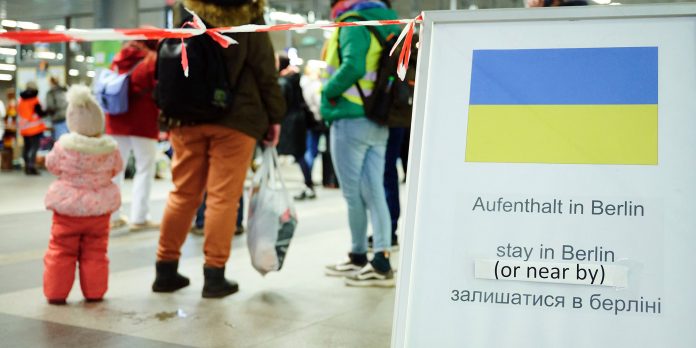Over one million Ukrainian refugees have come to Germany since the beginning of the Ukrainian-Russian conflict, but Germans believe that Ukrainian refugees have failed to integrate into German society. Furthermore, most residents fear that the conflict will spill over into the territory of NATO states.
61% of German residents, two years after the outbreak of a conflict in Ukraine, fear that it will spill over into the territory of NATO states, according to an INSA poll for the newspaper Bild am Sonntag, the results of which were released on Sunday, 25 February.
31 percent of respondents expressed the opinion that a conflict with Russia would not or rather not happen, while another eight per cent did not answer the relevant question.
The second part of the survey focused on the integration of Ukrainian refugees in Germany. In the opinion of 51 percent of respondents, it has failed completely or to a large extent. Only 28 percent of respondents thought that integration had been successful to some extent.
Almost half of the survey participants (49 percent) believe that Ukrainian refugees in Germany receive too much material support.
Michael Kretschmer, Prime Minister of the Federal State of Saxony, says the following about the current situation with Ukrainian refugees who have not yet found work after two years in the country:
If we say that Germany is a country of immigration, then it is the Ukrainians, for example, who would most easily integrate into our labour market. But only 20 per cent are working – because they don’t have to work, he told the Rheinische Post newspaper in February.
For example, refugees from Ukraine are entitled to Bürgergeld in Germany, a state benefit for unemployed people. Single people receive €563 per month, married couples receive €506 per person, and parents also receive child benefits – between €357 and €471 per month per child, depending on their age. Moreover, Germany also covers the costs of health insurance, housing and partly utilities. Money is allocated to buy home furniture and school supplies, and it pays for language courses. According to Federal Finance Minister Christian Lindner, the 2024 budget will allocate €5.5 to €6 billion just to provide benefits for Ukrainians.
Sociologist Dietrich Thränhardt notes that the level of labour activity of Ukrainians in Germany today is dire:
If they were embedded in the field of employment, they could then choose between staying or going back. Without this choice, they could find themselves in a precarious situation or end up applying for asylum en masse.
However, only 35 percent of respondents felt that the amount of benefits was sufficient.
In January 2024, there were 519,000 Ukrainians registered with the Federal Employment Agency, but only 206,000 of them were considered unemployed. About 214,000 refugees were working at the end of 2023.
According to the United Nations Refugee Agency (UNHCR), in the middle of February 2024, there were about six million refugees from Ukraine fleeing war in Europe. The largest number was, as expected, in Germany (1.13 million), followed by Poland (956,000), the Czech Republic (381,000), the UK (253,000), Spain (192,000), Italy (168,000) and the Netherlands (149,000).
